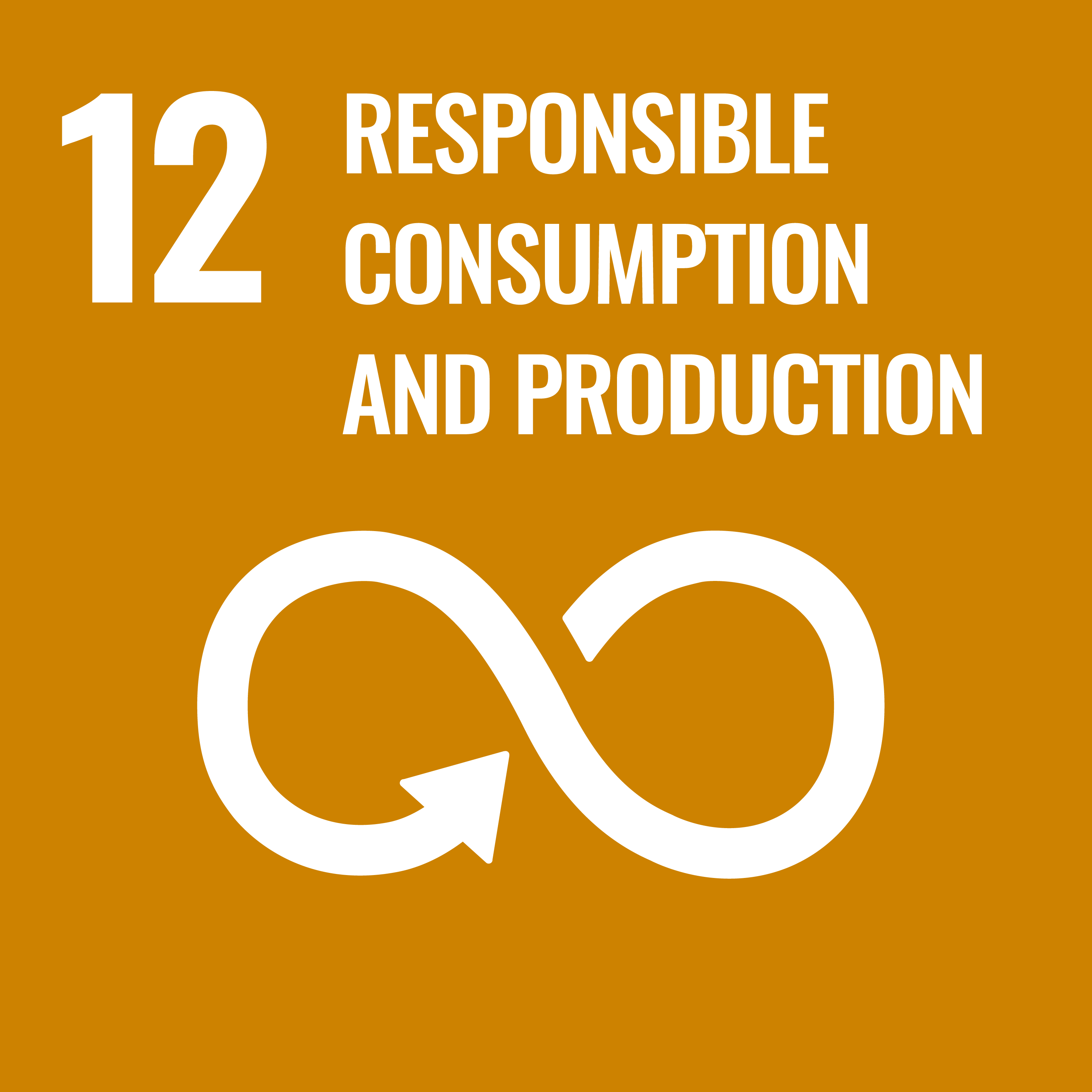Achieving economic growth and sustainable development requires that we urgently reduce our ecological footprint by changing the way we produce and consume goods and resources. Agriculture is the biggest user of water worldwide, and irrigation now claims close to 70 percent of all freshwater for human use.
The efficient management of our shared natural resources, and the way we dispose of toxic waste and pollutants, are important targets to achieve this goal. Encouraging industries, businesses and consumers to recycle and reduce waste is equally important, as is supporting developing countries to move towards more sustainable patterns of consumption by 2030.
A large share of the world population is still consuming far too little to meet even their basic needs. Halving the per capita of global food waste at the retailer and consumer levels is also important for creating more efficient production and supply chains. This can help with food security, and shift us towards a more resource efficient economy.
The South Korean company Samdong ENT plans to establish a cluster for solid household waste processing in Samarkand region. In this regard, the Samarkand Institute of Economics and Service is making a huge contribution to these projects with the help of its students and laboratories.
Samarkand Institute of Economics and Services uses a local recycling company, Samdong ENT Company, which has implemented Single Stream Recycling, allowing students and faculty to easily determine what they can and cannot recycle. Additionally, this program allows all types recyclables (plastic, paper, glass, aluminum) to be placed in the same container, making it easier for the user. E-waste items should not be disposed of in the normal trash due to their high concentrations of toxic chemicals and heavy metals.
1) Samarkand Institute of Economics and Services uses online system instead of hard copy, solutions of reusable paper in back office, for instance, using 2-side of paper, always recheck your data before print.
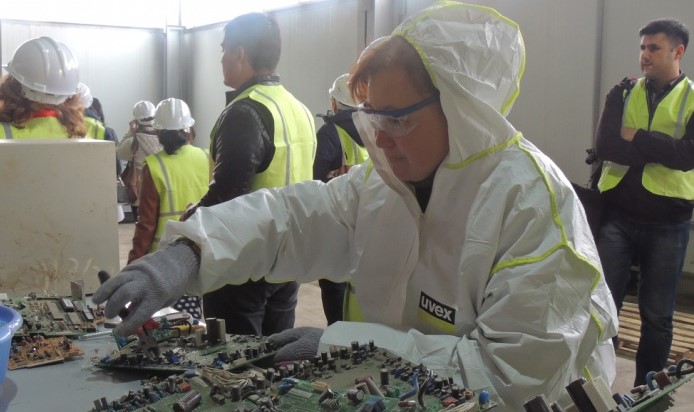
2) Samarkand Institute of Economics and Services has a policy of “Reduce Reuse plastic bag in the last 2 years. We can reduce around 1.2 million bags per year or reduce 72% of plastic waste in our Institute”.
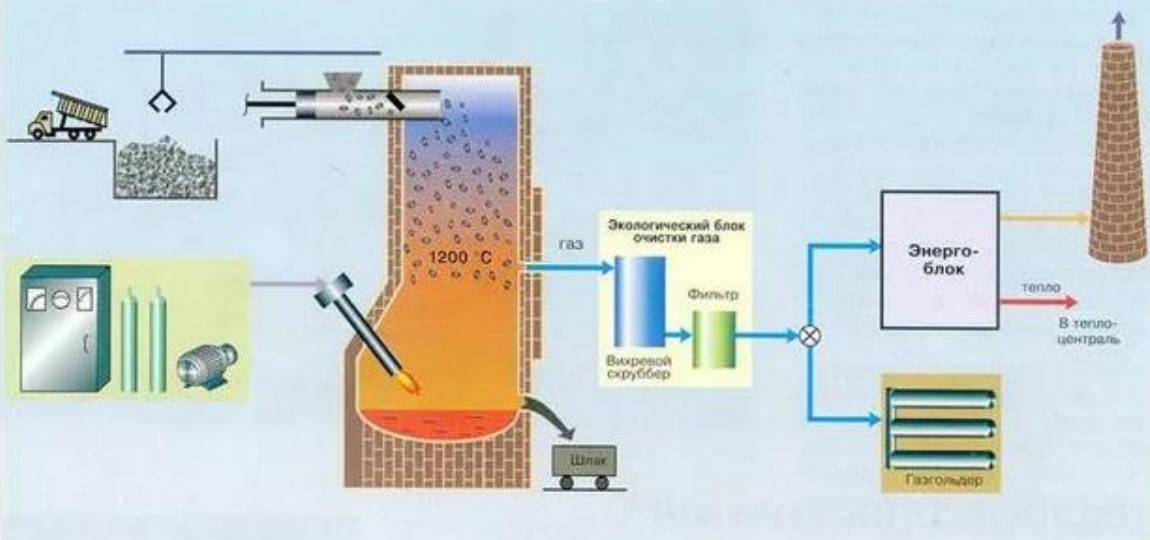
Total volume organic waste produced
Type of organic waste | Total Produced (ton)
- food waste | 324
- leaf, etc. | 105
- etc | 67
Total volume organic waste treated
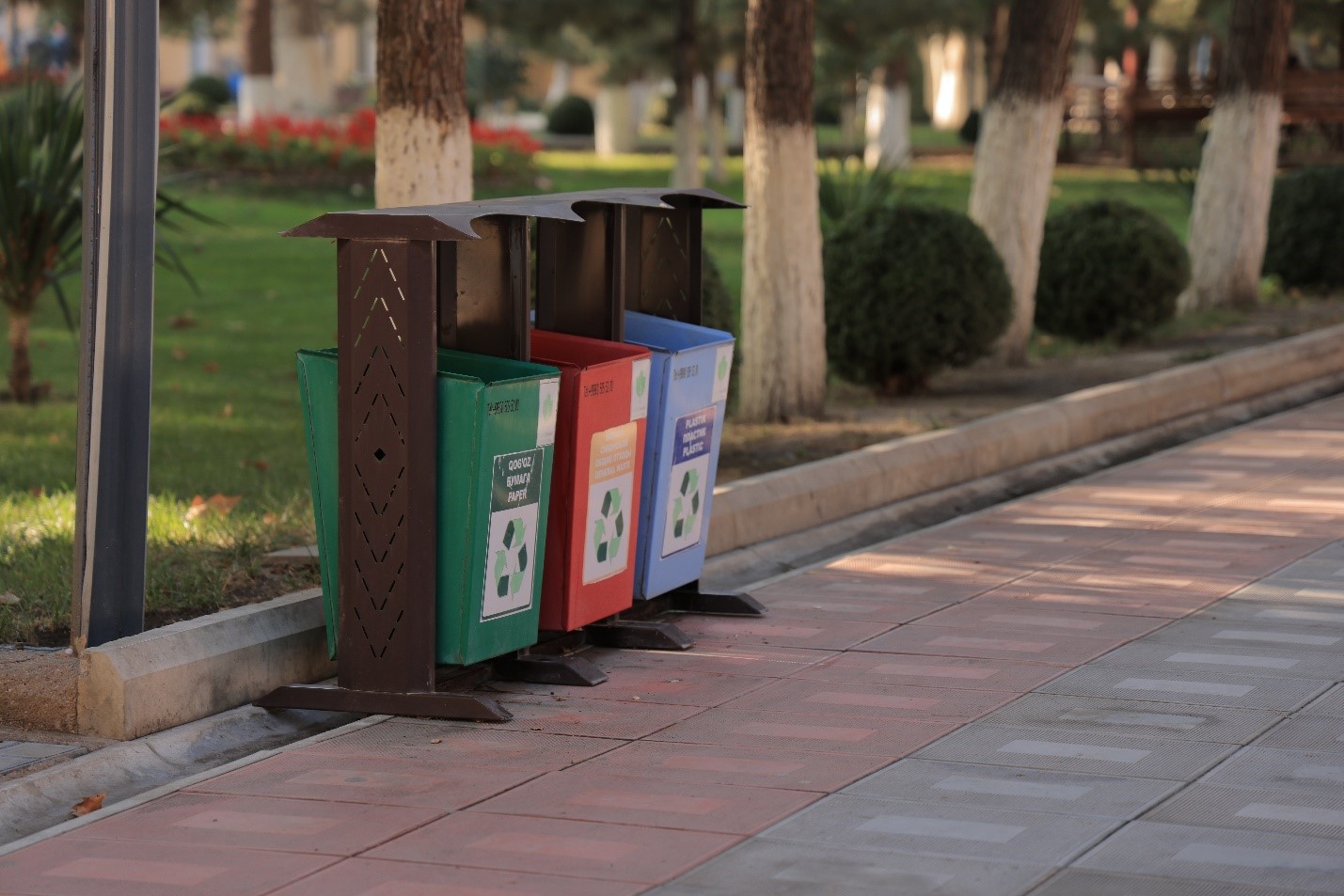
Type of waste | amount (ton)
total | reduced | reused | recycled |
organic | 409 | 65 | 41 | 303 |
- food waste | 276 | 41 | 26 | 209 |
- leaf, etc. | 94 | 18 | 11 | 65 |
- etc | 39 | 6 | 4 | 29 |
Inorganic Waste treatment in Samarkand Institue of Economics and Services developed with Samdong ENT company together with others companies, had foreseen the installation of an inorganic waste collector in which WEEE (Waste Electrical and Electronic Equipment) could be gathered. The main scope of the project was to optimize, and generally improve, the recycle process of small WEEEs in order to recover valuable precious metals and rare earth elements, through a low impact pilot-project.
Battery Project: the project, starts from the collaboration between the University, the Municipality of Samarkand has the aim to raise users and citizen awareness on WEEEs collection and recycling.
Total volume inorganic waste produced 140 ton.
Total volume inorganic waste treated 123 ton.
Total volume inorganic waste treated
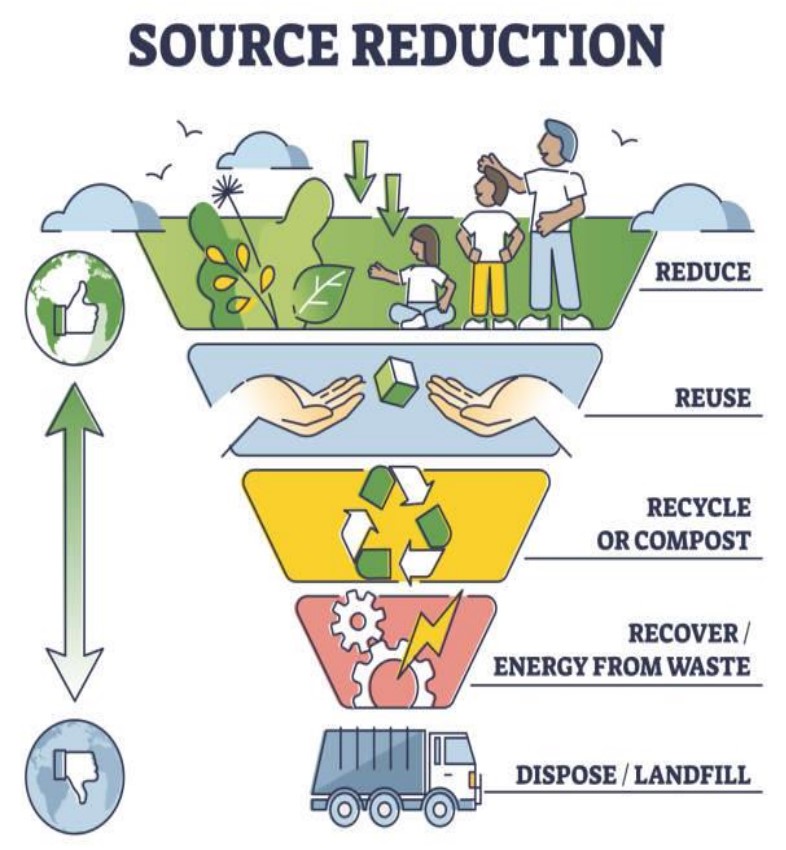
Type of waste | amount (ton)
total | reduced | reused | down-cycled | up-cycled
inorganic non-toxic | 119 | 13.2 | 20.7 | 45.1 | 40
- paper | 64 | 7 | 12 | 21 | 24
- soft plastic | 32 | 3 | 4 | 13 | 12
- hard plastic | 14 | 2 | 3 | 5 | 4
- etc | 9 | 1.2 | 1.7 | 3.3 | 2.7
 English
English
 Oʼzbek
Oʼzbek
 Русский
Русский

